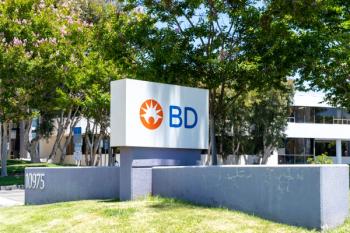
- The Column-02-05-2020
- Volume 16
- Issue 2
Popular “Grass Roots” Event Goes Back to HPLC Basics
ChromSoc have announced the return of their popular “Grass Roots” event series, and a return to the subject of “Liquid Chromatography Fundamentals” following many requests for another iteration of the original 2016 course.
The Chromatographic Society (ChromSoc) have announced the return of their popular “Grass Roots” event series, and a return to the subject of “Liquid Chromatography Fundamentals” following many requests for another iteration of the original 2016 course. The event will be held in Ambleside at the University of Cumbria, UK.
The series was born out of the ChromSoc’s Diamond Anniversary celebrations back in 2016 and was aimed at graduate students and novice chromatographers from industry. Following the success of the initial course, held in Grasmere, in the Lake District, UK, the society has continued to hold the events, with each one focusing on a different topic, including small molecule method development and biopharmaceutical analysis.
The course will be a four-day event relevant to postgraduate students and novice industrial chromatographers, focusing on the fundamentals of liquid chromatography (LC) and how this can be applied practically in industry and academia. Lectures will include understanding the importance of molecular physicochemical parameters in chromatography, core approaches to manipulating chromatographic selectivity and resolution, chromatographic modes, understanding LC instrument operation (including hands-on activities with high performance liquid chromatography [HPLC] and ultrahighâpressure liquid chromatography [UHPLC] instruments), fundamental sample preparation approaches, and gradient chromatography.
The event will be delivered by a number of chromatographers with extensive training and industrial experience including Mel Euerby (Shimadzu), Tony Taylor (Crawford Scientific), Tony Edge (Agilent), and Paul Ferguson (AstraZeneca). While the meeting will be primarily educational, there will also be extensive opportunities for networking and a walk in the countryside of the Lake District, which is a World Heritage Site.
Funding from the ChromSoc, Shimadzu, YMC, and the Royal Society of Chemistry Separation Science Group has been made available to provide full funding for a limited number of UK-based postgraduate researchers (PhD/D.Phil) to attend. Additionally, ChromSoc are providing industrial bursaries for postdoctoral researchers, lecturers, and chromatographers working in small- and medium-sized companies.
Further information and the event registration link can be found on The Chromatographic Society’s website at
Articles in this issue
almost 6 years ago
LCGC Europe Announces 2020 HTC Innovation Award Winneralmost 6 years ago
Knauer Aids Homeless Charityalmost 6 years ago
Waters Announces 2020 Biopharma Eventsalmost 6 years ago
Chicago BoundNewsletter
Join the global community of analytical scientists who trust LCGC for insights on the latest techniques, trends, and expert solutions in chromatography.




